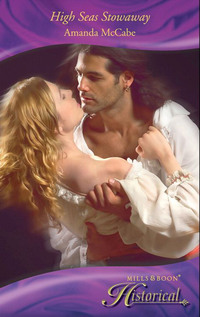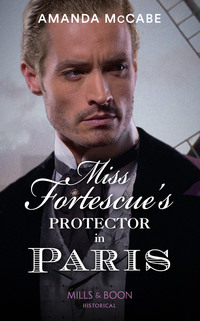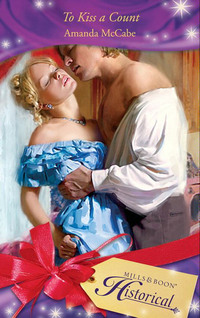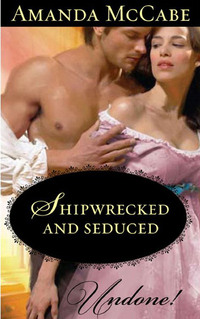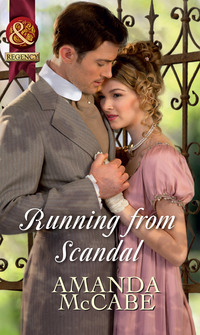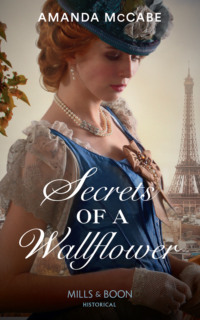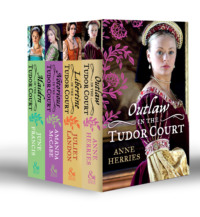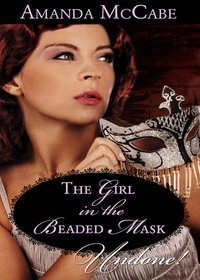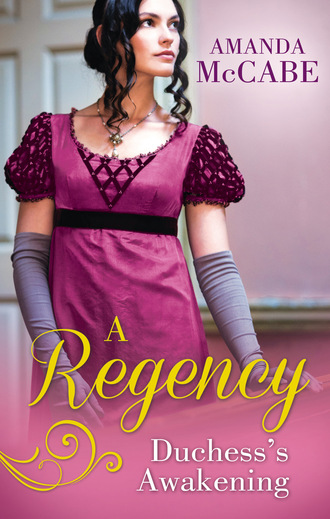
Полная версия
A Regency Duchess's Awakening
He put down the painting and buried his face in his hands as he remembered. He usually would not let himself think of her; it was long ago, and to remember was much too painful. But for some reason today she seemed near him.
He met Valentina Magnani on his Grand Tour, not long after his father and stepmother died and his stepbrother Brenner arrived to help them in their loss—the first time they met this son of Nicholas’s stepmother’s first, abandoned marriage. Nicholas was young then, barely out of university, and green as grass. Brenner thought a journey across the Continent, a time to learn more of his duties while still being largely free of them, would do him good.
And it had. At first he sorely missed his family, having never really been away from them before, but then the art and culture, the beauty of nature, enthralled him. They helped him heal from his loss, and he sent home many sculptures and paintings to adorn the ducal houses. He slowly started to find himself, who he might be apart from his family.
Then he came to Verona, Romeo and Juliet’s city—and met Valentina one day at the market as she did her family’s shopping. She was tall, honey-skinned, with satiny black hair and bright, dark eyes. She laughed at his clumsy attempts to speak Italian to the merchants, and helped him buy his fruit and bread. He was enchanted by her, by everything about her—her happy laughter, the glimpse of her red, ruffled petticoat at the hem of her brown skirt, the vivid, joyful life of her. She made him feel brought back to life, too.
He walked her home that day, carrying her basket for her, listening to her musical voice teach him more words of Italian, becoming more infatuated with every step. He met her mother, took tea with them. They were a respectable family of the city, her father an attorney, but they were decidedly not nobility. Not suitable duchess material.
Nicholas opened his eyes to stare blindly out at his library, the vast, dimly lit space, shadowed by soaring shelves of leather-bound books and crowded with heavy, old furniture. In the corners lurked statues from that voyage, pale marble gods and goddesses who stared back at him with their cold eyes. He had hoped to bring home more than art, more than freezing stone. He hoped to bring back life and laughter, a wife. A family.
His courtship of Valentina was quick, passionate. After all, he came from a line of people who gave all for the sake of love—his own blood ran just as hot, and he had never felt for anyone as he did for Valentina, either before or since. He craved her presence, her smile, her kiss, wanted to be with her all the time, and she felt the same for him. They went on long walks all over the city, kissing passionately in silent alleyways, in dusty museum galleries. He sat in her family’s drawing room and listened to her play the harp while her siblings ran around them.
Her home reminded him of his own at Welbourne Manor, where his brothers and sisters dashed about amid the ring of laughter. They would love Valentina, he knew, even if society wasn’t so accepting. They would help him make her happy even in grey, damp England, he was sure of that. So he married her in a little Verona chapel. He raised her lace veil and kissed her in the glow of stained glass, and had never been happier than in that one perfect moment.
Happiness was not to last, though. They went to a country villa for their honeymoon: long days of golden sun; warm, dusty nights of passion. Even before they returned to Verona, Valentina was pregnant. There could be no question of returning to England until she and the child could travel, so Nicholas waited to write to his family until he could announce both the marriage and the baby. Otherwise they would come rushing to him, and he wanted Valentina to himself awhile longer.
Thirteen months he was a husband, barely more than a year. One hour he was a father, to a tiny son who lived such a brief life. Then both the baby and Valentina were gone. The laughter and light were vanished as quickly as they began, and he was alone.
Well, not entirely alone. He had his family, his duty, his cursed title. After his wife and child were buried, he left Italy for home once again, his heart left behind under that cemetery cypress tree outside Verona, and he devoted himself to his family. He kept that brief marriage a secret, for he could not bear to speak of it, even to his sisters. He couldn’t bear the pity he would have seen in their eyes.
Over the years, the pain faded. He learned to cherish the memory of Valentina without despairing of what might have been. Only once in a while, on days like this, did he take out her portrait and try to imagine her near him again.
It became harder all the time. She moved further into the past. Yet a vivid fear remained, especially when he was told yet again he should do his duty, marry and produce children. How could he put another woman through the pain and fear Valentina suffered when their son was born, the agony when the baby died in her arms? How could he hurt a woman like that, watching her suffer and knowing it was his fault?
He would surely never love another as he had Valentina, but he would not marry without at least liking and respecting a lady. And he could not inflict that on someone he considered a friend.
Perhaps Stephen would marry, despite his protestations, and have children who could inherit the title. Yet that seemed unlikely. He was too busy with his racetrack scheme to consider a proper marriage.
Nicholas carefully put the portrait back into its case and hid it once more in the dark drawer. That past was gone, and he had to remember that.
But that did not mean he was quite ready to face answering all those invitations just yet. He left them on his desk and went to the window to stare down at the windswept street, at all the passers-by hurrying on their busy way. Nicholas always wondered where they were going, what purpose drove them onwards during their day.
Sometimes they stopped to peer past his wrought-iron gates, no doubt wondering the same thing about him. What did a duke do behind his grand walls? Manning House was one of the largest houses in London, a vast, impractical edifice of pale stone and copious windows his grandfather had built and which they were now stuck with for ever. It was grand and impressive, surrounded by gardens, crowned by a large ballroom and a dining room large enough for a state dinner. But it was impossible to heat, and right now it was good only for nieces and nephews to chase each other down the wide corridors, once they were old enough.
It needed a mistress, a hostess to redecorate the fusty old chambers and arrange for parties to suit its grandeur. Yet another reason to put the past away and think of that blasted, ever-present Duty.
Nicholas reached for the edge of the velvet drapery to draw it across the window. Maybe if he couldn’t see outside he couldn’t be distracted by what was happening on the street. As he tugged it closer, he glimpsed an open carriage rolling slowly past on the street, carrying two stylishly dressed ladies whispering together. One of them turned her head slightly, and a ray of pale sunshine caught on a blonde curl, a soft white cheek. It was Lady Emily Carroll.
She laughed at whatever her friend was saying, her pale cheeks flushed pink. She swept back that errant curl with her gloved hand.
How beautiful she is, Nicholas thought with bemusement. Oh, he had always known Lady Emily was beautiful; she was famous for it, and it was easy to see in the perfect symmetry of her heart-shaped face. He was struck by it last summer at Welbourne, but then forgot when she seemed not to like him.
Now, with her face alight with laughter, the sun on her hair, he saw it all over again. What could make her laugh like that? What could he possibly say to make her smile?
It was a challenge indeed. And a Manning was never one to back away from a challenge.
The carriage turned the corner, seeming to head toward the park. It was nearly the fashionable hour, when all the ton piled on to their horses and into their carriages and paraded past each other yet again.
Nicholas turned away from the window, and from the work that waited at his desk, and strode out of the library. All that could wait. “I need my horse saddled! “ he called. “Quickly!”
Chapter Four
“Look, Emily! It’s Manning House. Isn’t it lovely?” Jane cried, gesturing at the vast mansion as their carriage bounced past. “Like a palace in a fairy story.”
Emily laughed as she studied the gleaming windows, laid out like endless rows of diamonds in white stone expressly to show off wealth great enough to counter any window tax. She remembered a line she learned once in lessons on Tudor history—’Hardwick Hall, more glass than wall.’ Somehow, it was hard to imagine the duke living there in that chilly mausoleum.
“If the fairy story is about the Snow Queen, bringing down winter from her mountain fortress,” she said. “It looks mightily uncomfortable.”
“But excellent for grand balls,” Jane declared, her gaze still fastened on the house. “Can’t you just imagine being the hostess of such a gathering? Being a duchess?”
“I can imagine it,” Emily said, still laughing. “It sounds horrid. Everyone staring all the time, everyone pestering for invitations to those grand balls …”
“Exactly! The Duchess of Manning would utterly rule society. She could set every fashion. Wouldn’t that be wonderful?” Jane sighed deeply, glancing back over her shoulder as they turned a corner and Manning House disappeared from view.
Emily’s laughter faded, a sneaking suspicion setting in as she studied her friend’s narrowed eyes. “Jane, have you set your cap at the Duke of Manning?”
“Oh, la, no!” Jane cried. The brief glint of calculation faded as she giggled. She straightened her feathered bonnet on her auburn curls and sat back against the carriage cushions. “I’m not such a fool as that. I’m too harum-scarum to ever be duchess material. That’s your department, Em.”
“Mine?” Emily said, shocked. “Of course not. I would make a wretched duchess.”
“Nonsense. You seem born to royalty, with your looks and your quiet grace. And since there is no eligible prince at present, a duke would be the next best thing. Especially one as handsome as Manning.” Jane leaned closer and whispered, “Don’t his blue eyes just make you want to melt?”
Well—they did, actually. Whenever he looked at Emily she longed to sink down through the floor, robbed of any powers of speech she might once have possessed. But she would never admit that, not even to Jane. Not even to herself.
“He is quite fine-looking,” she said carefully.
“Fine-looking?” Jane scoffed. “He is a veritable Greek god. My parents would be in alt if I could catch him, of course, but it would never happen. I shall have to settle for some country baronet, I suppose, like William Jameson. He seems on the verge of making an offer. What about you?”
Emily laughed. “I’m not in the least bit interested in Sir William!”
“Certainly not, who would be? That nose! But there must be someone you like?” “No, there’s no one.” “I cannot believe that.”
“Believe it, my dear Jane. I have met no one this Season I could be really fond of. Perhaps I shall have to find a country squire, too. Maybe a nice curate?”
She spoke in jest, but really a curate would be just right. An earnest, sincere young man who would read to her by the fire in the evenings. Who would ask for her help with his sermons, and praise her charity work in the neighbourhood and never grab her suddenly as Mr Lofton had. It would be perfect—if he had a roguish smile like the duke …
Emily gave her head a hard shake. “That is what I need.”
“A curate? Your parents would never allow it. You are the beautiful daughter of an earl!”
The shy daughter of an impoverished earl. “We’ll see what happens.”
The carriage turned through the gates of Hyde Park, joining the flow of vehicles and horses parading for the fashionable hour. “Don’t worry, Em, the Season is not done yet. We have time to find someone better than the Sir Williams of the world,” Jane said. She reached into her reticule and drew out a small square of vellum. “Maybe here?”
“What is that, Jane? Some sort of love letter?”
Jane giggled. “No, silly! Tickets to a masked ball at Vauxhall. My sister, Mrs Barnes, procured them for me, and she has agreed to chaperon us there. She’s terribly easy to distract, though—she won’t get in the way of our fun.”
“Vauxhall?” Despite herself, Emily was terribly intrigued. She had heard of the infamous masked balls held in the pleasure gardens, of romantic assignations in dark walkways and glorious illuminations that transformed the night. She had laughed at some of the wilder tales, sure they could not be true.
But—what if they were true? What if she went and saw them for herself?
She glanced down at the tickets. A concert by Signora Rastrelli, they read in scrolling script. Fireworks and illuminations grander than anything yet seen in London!
Music, fireworks. It did sound wondrous. But … “Jane, I’m not sure we should.”
“We’ll be wearing masks ! No one will even know we’re there.”
“My parents would never allow it.”
“Then just tell them you’re staying with me at my sister’s house that night. Tell them—oh, I don’t know! That her relation, a curate, has come to visit and has promised to read us some fine sermons.”
Emily laughed, torn between her duty and the promise of a little fun. Surely an evening of music could not be harmful? She didn’t plan to go off along the Dark Walk, after all.
Something deep inside of her, some tiny, terrible imp of mischief that seldom dared show itself, pushed at her. Go on, it whispered, soft and alluring. Be a little daring. What harm could it do? You have been working so hard.
But it could do a great deal of harm, she feared. Yet still the temptation was there.
“I don’t know,” she said. “I think—”
“Good afternoon, ladies!” someone called, interrupting her words. “Very pleasant weather we’re having, are we not?”
Emily looked up to see Mr George Rayburn approaching on his horse. He had been the only suitor to really appear this Season, dancing with her at her first ball and being attentive since then. He sent flowers, fetched her lemonade at parties, things of that nature—if that could really be called a suitor. He had not made an offer, and her parents would have refused him anyway. His fortune was respectable enough, from all reports, but he had no title.
Now, though, at the end of the Season, if he were to come forward, they might be more amenable. If Emily liked him, she could probably persuade them Mr Ray-burn was a reasonable match.
He drew in his horse next to their carriage and tipped his hat, smiling down at them. She should like him, Emily thought as she smiled back at him. He was terribly handsome, with waving, glossy dark hair and hazel eyes, a strong jaw and straight nose. He was tall and lean, athletic, much admired. He read poetry, had travelled widely, had correct opinions and impeccable manners.
And he did seem to like her. He wasn’t put off by her shyness or her lack of dancing skills. Why could she not really like him? Perhaps it was that way he had of looking at her.
But maybe she was wrong. Everyone else seemed charmed by him, even Jane. Her friend held out her hand to Mr Rayburn with a happy trill of laughter.
“Mr Rayburn! We have not seen you out and about this week,” Jane said.
“I fear I had to attend some business on my estate that could not wait,” he answered. He seemed to speak to Jane, but his gaze lingered on Emily. “I am sure I could not have been much missed in all the flurry of the end of the Season.”
“Oh, but I vow you were!” Jane said. “There were not enough gentlemen to dance with at Lady Orman’s, were there, Emily?”
Emily smiled, remembering how she herself had not danced at all, no matter how many men there were. “No, I suppose there weren’t. No gentlemen who were good dancers, anyway.”
Mr Rayburn arched his brow. “You think me a good dancer, Lady Emily?”
“You managed to avoid getting your foot stomped on when we danced, Mr Rayburn, and you prevented me from tripping more than once. To me, that makes you an expert.”
“I am glad I impressed you with something, Lady Emily,” he answered.
Jane glanced between the two of them, her head tilted as if she puzzled something out. “Shall we all walk for a bit? I feel in need of some exercise.”
Emily nodded eagerly. Perhaps if they were walking, in the midst of the crowd, she could more easily avoid Mr Rayburn’s steady hazel stare. He did always seem to watch her, expect something from her when she could not fathom what it was. She only knew it made her feel fidgety, uncomfortable—and not in the same way the Duke of Manning did.
They left the carriage and set out along one of the pedestrian pathways. Emily loved coming to the park in the mornings, when the walkways were sparsely filled with nannies out with their charges and footmen walking the employers’ dogs. She loved watching the children with their hoops and dolls, enjoying the light and fresh air, the freedom. It made her yearn for the day when she would have a child of her own to walk with in the park, to love and nurture. But the park was such a very different place late in the afternoon, when it was taken over by stylishly dressed society figures, intent on seeing and being seen.
A couple, laughing raucously together, brushed past, jostling Emily. She stumbled, and Mr Rayburn caught her arm in a hard grasp.
“Are you quite all right, Lady Emily?” he asked.
“Oh, yes, thank you,” Emily said. She tried to ease her arm away, but he held on, leading her along the pathway to a more open spot.
“It is shockingly crowded today,” Jane declared, quite as if it wasn’t exactly this crowded every day. “How fortunate we have you to protect us, Mr Rayburn.”
“And how fortunate I am to escort two such lovely ladies. I’m the envy of every man here,” Mr Rayburn answered with a charming smile. “Now, Miss Thornton, Lady Emily, perhaps you could tell me all I missed while I was sadly away from town. Was Lady Orman’s as great a crush as everyone predicted?”
“Oh, even more so!” Jane said. “One could scarcely even move without being trod upon.”
As her friend chattered on about the ball, Emily half-listened, her mind drifting away from the gossip, the crowded park, even from Mr Rayburn’s clasp still on her arm. She thought of next week’s planned lesson at Mrs Goddard’s, her favourite pupil Sally who showed such promise and how well they were all progressing. They needed more challenging material in their lessons to keep up with them. Perhaps she could teach them a bit of Italian? Some of them might even be able to go for governesses soon.
She was so distracted by her plans she didn’t notice the tree root in her path until she tripped right over it.
“Oh!” she cried, as pain shot through her thin halfboot and up her foot. Mr Rayburn’s hand tightened on her arm, holding her upright yet again. “Thank you, Mr Rayburn. You are very kind.”
“It is entirely my pleasure, Lady Emily,” he said hoarsely, staring into her eyes. “You do seem to need someone to look after you.”
A sudden jolt of anger sizzled through her, and she finally shook her arm free of his touch. That was exactly what she did not want any longer, people always telling her where to go and what to do! “Looking after” always seemed to mean “telling what to do”. She never got to do what she wanted, or to make up her own mind about anything.
“Thank you for your assistance, Mr Rayburn. I am very well now.” Emily hurried ahead of Jane and Mr Rayburn, not knowing where she was going, only that she had to get away and shake free of that sudden, unaccountable anger. It made her feel ridiculously out of control.
She found herself near the Serpentine, its banks lined with yet more people, laughing, talking, seemingly so very pleasant and light-hearted. Underneath, though, Emily knew they were always watching, always— judging.
She walked on at a slower pace, making herself smile politely. Jane and Mr Rayburn followed her, still chattering together about that blasted ball.
In the distance, just at the edge of the clearing near the river, Emily glimpsed the Duke of Manning himself, seated on a white horse that contrasted dramatically with his well-cut dark blue coat and fine doeskin breeches. She stopped short, nearly tripping yet again as she stared in sudden dazzlement.
She just couldn’t seem to help herself. It was as if all the light of the day gathered directly on him, and he was all shimmering gold.
She remembered myths of Apollo, called “Ever Bright” by the Muses, and she was sure this was what they meant. Despite the swirling crowds, he appeared to be alone in a glowing pool of serenity and light. He wore no hat, and his golden hair was windblown, falling over his brow and the collar of his fine coat. He held the reins lightly in one gloved hand, answering greetings with a faint smile on his face.
It was almost as if he was bemused to find himself in such a cacophonous scene.
“Whatever is Manning doing here?” she heard Mr Rayburn say behind her. “No one in his family ever deigns to come among the crowds here.”
Emily could not blame him for that. If she was a duchess, she would never do what she didn’t want to, either. But why was he here? She had never seen him in the park before.
“Should we say hello to him?” Jane asked. She sounded uncharacteristically indecisive. Jane always seemed to know exactly what she should do.
“And stand in line with everyone else eager to pay court? I don’t think so,” Mr Rayburn said dismissively. He took Jane’s arm and the two of them turned away. “I thought we were going to walk. Lady Emily?”
“Yes, of course,” Emily said. She started to turn away, as well, to follow them back down the path. To her astonishment, though, the duke caught sight of her and smiled.
He tugged on his horse’s reins and headed straight toward her.
“My goodness ! The Duke of Manning is coming here,” Jane cried.
“So he is,” Mr Rayburn muttered. Emily looked back at him just in time to catch a glimpse of a frown on his face, before it was covered in his usual sociable, practised smile. It seemed perhaps he did not much care for the Duke of Manning.
Emily wondered if he knew something the rest of society did not. Otherwise she could not account for such a reaction. What could it be?
“I think—oh, my!” Jane said. “I think he means to talk to us.”
And indeed he did. He reined in his horse right next to Emily and politely nodded to her, smiling. “Good afternoon, Lady Emily. I trust you have recovered from the dreadful crush of the Orman ball?” he said. His smile widened, more of a grin really, wide and white and full of gentle, teasing humour. As if they shared some secret, as if he remembered all too well when she slipped on the stairs and fell into his arms.
A hot blush touched her cheeks, and she ducked her head to try to hide under her bonnet’s straw brim. “I am quite recovered, thank you, your Grace,” she said with a curtsy. “Though I am definitely enjoying the fresh air today much more!”
He laughed, and shifted easily in his saddle, as if he was born on horseback. He looked so right there, Emily thought, comfortable and elegantly powerful, while she was terrified of the huge beasts.
Horses, of course—not dukes. Though she was also rather terrified of him, when he looked at her so intently, as if he was seeing her for the first time. It was a very different sort of terror than that she felt when Mr Lofton grabbed her in the garden, though. It was a temptation inside her own heart.
“I definitely agree with you on that, Lady Emily,” he said. “A sunny day outdoors is much to be preferred.”


